5-step History Introductions
Check out this simple and practical approach to structuring your introductory paragraph.
Start Browsing
Start browsing
< Wait, I have a password

to your account
 Facebook
Facebook
< Wait, I don't have a profile yet
Reset Password >
to save your details
 Facebook
Facebook
< Wait, I already have a profile

Start browsing
< Wait, I have a password



No matter what grade you’re in, no matter how many times you’ve done them before, exams are pretty nerve-wracking experiences. Of course, our preparation for an exam tends to account for about 80% of our marks, but there’s still about 20% that can be changed or affected on the day. The thing is, you can’t do any better walking into that exam than your preparation, but you can do worse. Allowing stress to get the better of you can only make you lose marks, so it’s crucial that the process we follow on the day leading up to the exam (and in reading time) absolves us of as much stress as possible!
How many times have you seen people stand outside an exam room pouring over their notes trying to get every last ounce of information into their brains? The last minute cram may make us feel more confident, but it presents two really crucial problems.
Firstly, imagine you were reading through all your notes outside the exam room before being allowed to enter the room and someone asked you a question about a topic that you didn’t have notes on. It is highly unlikely that you would thank them for kindly pointing out to you where your notes are deficient – instead, with only minutes before you enter the exam hall, the most likely reaction is to freak out and stress about the possible consequences! In situations like these, cramming at the last minute is only likely to make us more stressed.
Secondly, our brain tends to remember information using two primary functions: primacy and recency. Primacy refers to the first thing we are told, while recency refers to the last bits of information we take in. If you’re cramming one particular topic outside the exam hall, you’re flooding the recency part of your memory and more likely to only remember this part of the subject. If you do feel you need some notes as a refresher just before walking into the exam, try using just one A4 sheet of trigger words from the entire topic or course. That way, you’re not overloading your brain with too much information, you get a good overview of what’s important and you don’t jeopardize parts of the subject.
Ever had someone run up to you before an exam freaking out, worrying like crazy that they’re about to fail? Before any exam you’re bound to see people frantically pacing around outside the exam hall. These people are called stress-merchants, and they are dangerous! Of course, stress is contagious, so if you hang around these types of characters you feed off their stress and are likely to adopt their nervous energy as well. If someone comes up to you sweating, chewing their fingernails and downright stressed out, the chances are they’re just going to make you more nervous.
Also, the adrenal glands get pumping and the fight or flight response kicks in – as most people tend to take flight when stress is at its fiercest, we can start doubting our ability to really ace our exams. The best solution to adopt is to try avoid those people you know are likely to stress you out in the minutes before an exam. Go for a short walk, grab some fresh air, have a bite to eat and relax knowing that you’ve done all the preparation you can and that over-stressing will only diminish your performance. Of course, don’t go too far from the exam room, so keep one eye on the door at all times!
Stress is a perfectly natural reaction to a difficult situation such as exam. We need a little bit of stress, or else we simply would never put in any effort for anything! The problem is when this stress gets totally out of hand and you start freaking out.
Once you get into the exam hall and have a chance to sit down and settle, take a few deep breaths in and out. When we get stressed, we actually change the way we breathe. Believe it or not, by doing a few simple breathing exercises, you’ll get more oxygen flowing to your brain, which actually allows you to think more clearly! Awesome! A pretty simple way to do this is to put your hands on your stomach, and when you breathe out make sure your shoulders stay still and stomach moves out.
Opening that exam paper for the first time is one of the more daunting experiences as a student! The most common reaction is to sit there and think to yourself “I literally have no idea what these questions are asking – is this even written in English? Does this have anything to do with what we learnt this year?” Always remind yourself at this stage that you will always be tested on something that is in the syllabus or specification. Whenever you’re stumped with a question, think back to your syllabus and try work out which part of the course the question is leading to. Once you’ve narrowed this down, it becomes much easier to zone in on what is actually being asked.
Make sure you read each question thoroughly a few times – sometimes questions may seem daunting at first, but after a few readings it can start to make a bit more sense. Better still, listen carefully to your initial thoughts and reactions to a question. Often we can double-back and change our initial response, when in actual fact that first response was correct!
There was a research project conducted at Stanford University where the professor gave his students a 50 question test. He engineered the test so that every answer was C. We all know what happens if you’re doing something which is multiple choice and its always the same answer – you second guess yourself! These students were highly intelligent and they knew the answers but they looked at it and thought “there’s no way every answer can be C”, so they started to look at other ways and second-guessed themselves. On average, those students that second-guessed themselves did 20-26% worse than those who trusted their initial judgment. 9/10 times the first thing you remember is the right thing. Don’t rub it out, you won't get any marks if you do. Particularly with Maths, leave your working out so at least the examiner can give you some marks.
One of the first things that can go wrong in the exam room is we spend too much time writing on the wrong question. This can happen where you’ve got plenty of information in your head particularly on one topic, yet when you open the paper you see a question with only a very small mark allocation to the question relating to that topic – we rationalize to ourselves: “are you serious, I spent 2 weeks revising this! You made me learn it, you’re going to read about it!” We end up spending way more time than we need to on a question that doesn’t get us that many marks!
When an examiner constructs an exam, they have in mind how much time – to the minute – you’re meant to spend on each question. If you can work out that formula it gives you a guide to know how long to spend on each question. That formula is minutes ÷ marks. For instance, if you have a 2 hour paper (120 minutes) and 20 marks to complete, you would spend 6 minutes on each mark. At the start of an exam, quickly work out how long each question should take you – if you stick to it, you’re going to get to the end of the paper and if you’ve saved time here and there, you can come back and add stuff into your answers.
 -
-